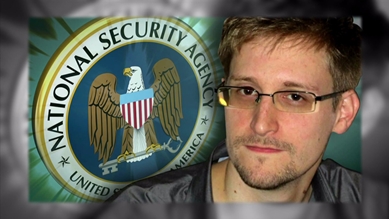A European Parliament committee has approved inviting the ex-NSA contractor, Edward Snowden, to testify for US snooping on the EU leaders through a video link.
 The Justice and Civil Liberties Committee of the parliament voted 36-2 with one abstention in favor of seeking testimony from the US whistleblower who has sought asylum in Moscow temporarily.
The Justice and Civil Liberties Committee of the parliament voted 36-2 with one abstention in favor of seeking testimony from the US whistleblower who has sought asylum in Moscow temporarily.
Yahoo reported that the MEPs who opposed testimony fear jeopardizing US-EU relations. Conservative MEP Timothy Kirkhope voiced his apprehensions about inviting Snowden and said it would “endanger public security around Europe and beyond.”
The leaked reports raised concerns and uproar worldwide about the US surveillance practices that apparently runs a global system to monitor internet and telephones. NSA was alleged to have tapped mobile phones of German Chancellor Angella Merkel, which caused hue and cry among MEPs demanding suspension of the EU—US free trade deal talks.
No dates have been proposed yet for the testimony, but it is likely that Snowden hearing may take place in April if it has full house approval which will take place in February.
Questions to be asked will be compiled in the following weeks with each political group getting to ask roughly two questions. Labour MEP Claude Moraes, a leading proponent for testimony invitation, promised the questions to be fair and rigorous. Some of the questions that he might ask Snowden include the reasons for decision to reveal the information and its consequences; his views on implications of the revelations, right to know, intelligence services and so on.
It appears for now that the interview may not take place in real time as a live linkup may provide NSA with location details about Snowden. A pre-recorded interview may be the only option, but the MEPs are hopeful of interactive situation in real time.
The investigation may help in drafting policy recommendations to safeguard privacy of European citizens and improve the IT security of European institutions.
However, the million dollar question is “Will Snowden accept the invitation of the European Parliament”, because for now, his stand on this still remains unclear.








